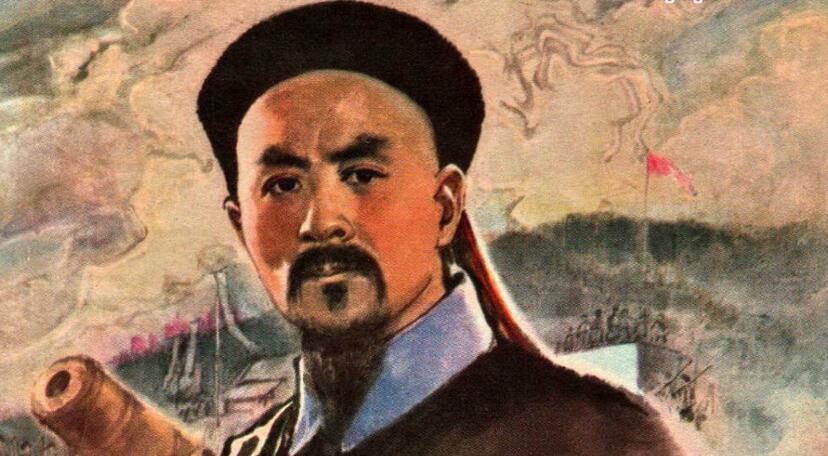
Lin Zexu, the first person to open his eyes to the world in modern times, is known as a national hero for presiding over the "Humen Tobacco Sale". From 1820 to 1840, due to the large number of opium smuggled by britain, the trade status of China and Britain underwent a fundamental change, and Chinese silver began to flow out in large quantities. In addition to the outflow of silver, the consumption of opium seriously reduced the combat effectiveness of the Qing army, all of which made the Qing court realize the importance of banning opium.
In the eighteenth year of Daoguang (1838), Huang Juezi of the Qing Dynasty's Hongxu Temple advocated the prohibition of opium, and he listed the dangers of opium in his recital to the Daoguang Emperor, "The amount of silver consumed is due to the abundance of tobacco, the prosperity of tobacco, and the multitude of tobacco." Huang Juezi believed that it was imperative for the Qing court to ban smoking, and the sooner the better, his proposal was praised by Lin Zexu, who was the governor of Huguang at the time. On November 15, 1838 (December 31, 1838), the Daoguang Emperor officially appointed Lin Zexu as the minister of Chincha and rushed to Guangdong to ban smoking.
After Lin Zexu arrived in Guangdong, after a series of effective measures, the anti-smoking action soon had results, and "Humen tobacco sales" was the climax of it. As we all know, after the "Humen tobacco sales", Lin Zexu was punished, "dismissed from his post and investigated, re-sent to Xinjiang Ili, and atonement for his sins." Two years later, the imperial court revived Lin Zexu and successively served as the governor of Shaanxi and Gansu, the governor of Shaanxi, and the governor of Yungui.
In the autumn of the twenty-ninth autumn of Daoguang, Lin Zexu returned to his hometown for recuperation due to a serious illness, and on the way back to Fujian from Yunnan, he made a short stay in Changsha, Hunan, and all the officials of Hunan Culture and Military Affairs came to visit. At this time, Lin Zexu sent someone from Xiangyin Liuzhuang to invite Zuo Zongtang to Changsha. Zuo Zongtang is very familiar to everyone, and people sing that "the country cannot be without Hunan for a day, and Hunan cannot be without Zuo Zongtang for a day." Lin Zexu talked with Zuo Zongtang all night, the two talked about national events, external troubles and internal worries, etc., Lin Zexu saw a different Zuo Zongtang, he firmly believed that one day Zuo Zongtang would stand out.
At the end of the conversation between the two, Lin Zexu said a prophecy to Zuo Zongtang, "Xiding Xinjiang, Shezuo Jun is no one." A year later, Lin Zexu died on his way to Guangxi, and in his posthumous performance, he specifically recommended Zuo Zongtang to the imperial court, calling him a world-class wizard. After Lin Zexu's death, Zuo Zongtang painfully lost his mentor, and he wrote a pair of elegies that had been transmitted for a hundred years, "Those who attach the gong are not all gentlemen, and those who are public must be villains, and those who worry about the country are like home, and they have been left behind for more than two hundred years; the temple leans on the Great Wall, and the grass and the field look forward to the rain, and the master is not successful, and the stars in the eight thousand miles are sinking." As for Lin Zexu's prediction that year, it was finally verified after more than twenty years, and Zuo Zongtang recovered Xinjiang.
Reference: The Biography of Lin Zexu